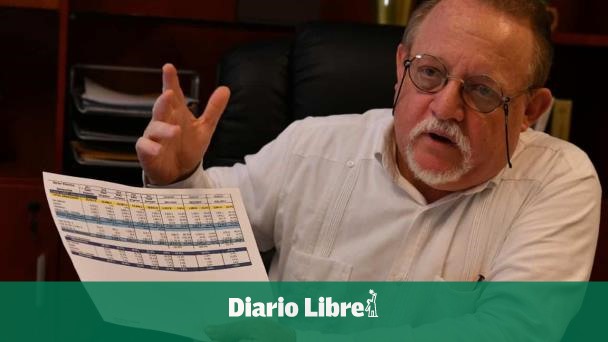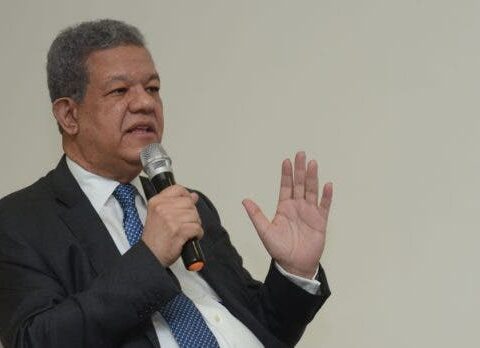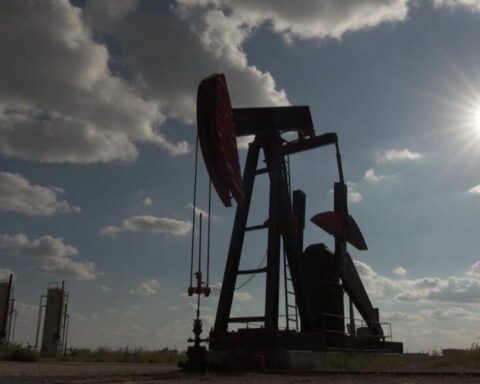The economist Henry Hebrard raised this Sunday that the conversion to natural gas of electricity generation plants that previously worked with very expensive oil-derived fuels have been the lifeline of the National Electric System because they have represented a savings of nearly 235 million dollars in foreign exchange for the Government and the Dominican people.
He cited among these plants Energies, Quisqueya I and Quisqueya II.
“The conversion of the units owned by the Energas company, as well as Quisqueya I and Quisqueya II, has allowed not only to deliver more Energybut also reduce the subsidy to the electricity sector by the State, since producing with natural gas it is cheaper and lowers costs for generators, distributors and therefore users. Therefore, since the transition to natural gas From March 2020 to March 2022, the country has achieved savings of about 234.61 million dollars,” he said in a press release.
He explained that, in addition, the Dominican State will continue to benefit, since the annual savings projected for the electricity sector as of 2023 are 518.2 million dollars for the conversion and signing of purchase and sale contracts for the Energas units, which owns a plant composed of three turbine units of 100MW each in combined cycle, as well as Quisqueya I, owned by the mining company Barrick Pueblo Viejo, and Quisqueya II owned by Ege Haina, the latter two with a total capacity of 450 MW each.
According to the document, Hebrard explained that those US$518.2MM of annual savings were due to the difference in fuel prices today, and specified that this is due to the good decision of the past and current authorities in making the conversion to natural gas and how it continues to promote natural gas being a clean fuel and with a more competitive price.
The economist stated that another advantage that the natural gasregarding the war between Russia and Ukraine, is that, unlike other fuels, it has supply contracts for the purchase of Energy long-term of 10 years, which ensures price stability and product availability regardless of what happens in international markets.
“This transition from the liquid fuel electricity generation matrix, basically full oil, to natural gas It has been one of the most important events in the network of transformation of the Dominican economy,” said the economist.
Hebrard reported that only the conversion of Energas and Quisqueya I and Quisqueya II represented investments that exceed 400 million dollars.
He explained that with the conversion to natural gas “everyone wins. The country obviously wins because there are already significant savings in the electricity subsidy, which has been one of the country’s biggest fiscal problems”.
He emphasized that these savings are especially relevant because the country benefits first and therefore each of the Dominicans as members of society.
He indicated that, by reducing the cost of generation, this allows the cost that is transferred to the distributors to be lower and that ends up benefiting the final consumer and “also for the State because by reducing the cost, that differential that was in a much higher cost of generation than it was for other fuels such as full oil, the amount of the subsidy was greater and much more in today’s new reality where a barrel of oil is above 120 dollars. This has practically been a lifesaver for the Dominican economy.”
He explained that according to the official data produced and published by the CDEE in its monthly reports, in the past year 2021 the generation to natural gas increased by 53.8%, while total generation grew by 7%. He considered that this increase in natural gas has made it possible to accompany the growth of the Dominican economy.
He reported that full oil generation, which until 2019 represented more than 40% of electricity generation, in 2021 fell below 10%, “something that seemed impossible, and science fiction today is a reality ”.
According to the note, as it was a questionnaire about the advisability of going back to producing with more expensive fuels as some sectors want, Hebrard considered that it would be “making the wrong decisions and going back to the time of the Flintstones (…) and changing this would be going backwards ”.
He added that: this agenda of the Dominican society that was an objective of the National Development Strategy, promoted by previous governments and the current one, which was financed by private investment, shows us that this is the correct model and leaving this model would be a decision very costly and it would be not to go forward, but to walk backwards. And what the current circumstances are showing us is that the Dominican Republic is one of the few countries in the area that is showing the capacity to grow beyond its possibilities and this would not be possible without this transformation that we have already achieved in the energy matrix. .








